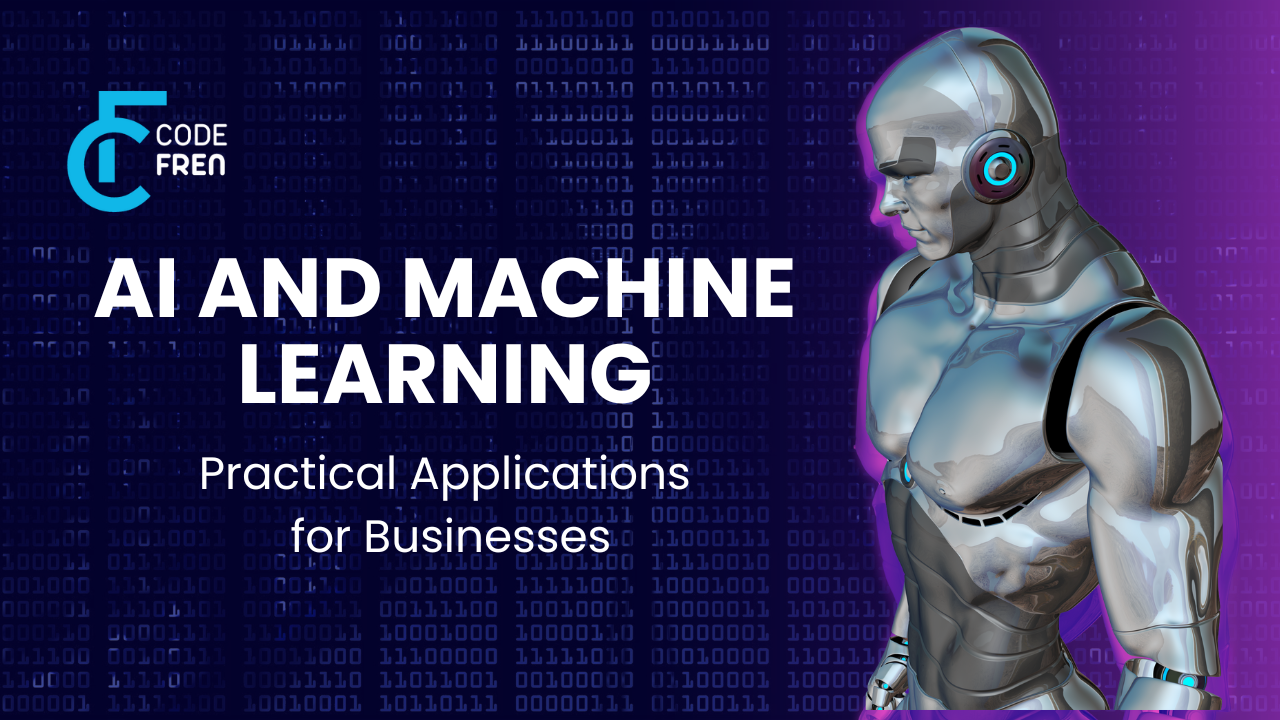In the ever-evolving landscape of technology, Artificial Intelligence (AI) and Machine Learning (ML) have emerged as powerful tools with the potential to revolutionize how businesses operate. From improving efficiency to enhancing decision-making, AI and ML technologies are finding practical applications in a wide range of industries. In this blog post, we will explore some of the most compelling use cases of AI and ML in business and how they are reshaping various sectors. These days companies like Google, Apple, Meta, Microsoft, and Netflix are focusing on these practical applications of AI and ML.
AI and Machine Learning Practical Applications:
1. Customer Relationship Management (CRM) and Personalization
One of the most notable applications of AI and ML in business is within Customer Relationship Management. AI-powered CRM systems can analyze vast amounts of customer data, including past interactions, purchase history, and online behavior, to provide personalized experiences. By understanding customer preferences, businesses can tailor marketing campaigns, recommend products, and offer better customer support. This leads to higher customer satisfaction and increased loyalty.
2. Predictive Analytics and Forecasting
Predictive analytics, powered by ML algorithms, enable businesses to make more accurate forecasts. For example, in the retail industry, ML algorithms can predict demand for specific products, helping retailers optimize inventory and reduce overstock or understock situations. Similarly, financial institutions use ML for credit risk assessment and fraud detection, enhancing their decision-making processes.
3. Supply Chain Optimization
AI and ML play a pivotal role in optimizing supply chain management. These technologies can analyze historical data, real-time information, and external factors like weather or market trends to optimize inventory levels, reduce transportation costs, and ensure timely deliveries. This efficiency results in cost savings and improved customer satisfaction.
4. Healthcare and Medical Diagnosis
In the healthcare sector, AI and ML are transforming the way diseases are diagnosed and treated. ML algorithms can analyze medical images, such as X-rays and MRI scans, to detect anomalies and assist radiologists in making more accurate diagnoses. Additionally, AI-driven chatbots are being used for patient engagement and providing health-related information.
5. E-commerce and Recommendation Systems
E-commerce platforms heavily rely on recommendation systems powered by AI. These systems analyze user behavior and preferences to suggest products that customers are more likely to purchase. This not only boosts sales but also enhances the overall shopping experience.
6. Manufacturing and Quality Control
Manufacturing companies use AI and ML to improve product quality and reduce defects. AI-powered robots can perform quality control checks at a level of precision that is difficult to achieve manually. This reduces waste and production costs while ensuring consistent quality.
7. Human Resources and Talent Acquisition
In HR, AI and ML streamline the talent acquisition process. These technologies can analyze resumes, assess candidate fit based on skills and experience, and even predict employee turnover. By automating parts of the hiring process, HR teams can save time and make more data-driven decisions. You can also use the Open AI, Chat GPT 3.5 model API to use in your application for embedding chat.
8. Financial Services and Algorithmic Trading
Financial institutions leverage AI and ML for algorithmic trading. These systems can analyze vast amounts of financial data and execute trades with split-second precision based on predefined criteria. This leads to more efficient trading and potentially higher returns.
9. Natural Language Processing (NLP) for Customer Support
NLP, a subfield of AI, is used in chatbots and virtual assistants to provide instant customer support. These AI-driven systems can understand and respond to customer queries in natural language, improving response times and reducing the workload on human agents.
10. Energy Management and Sustainability
In the energy sector, AI and ML are used to optimize energy consumption, predict equipment failures, and reduce carbon footprints. Smart grids, for instance, use AI algorithms to balance energy supply and demand in real time, ensuring a stable and efficient energy distribution.
Conclusion
AI and ML technologies have evolved from theoretical concepts to practical tools that businesses across various industries can leverage to enhance efficiency and decision-making. These technologies are not limited to large enterprises; businesses of all sizes can benefit from AI and ML applications. As these technologies continue to advance, their potential to drive innovation and competitive advantage will only grow. Get in touch with us today to get started with your first AI and ML-based software.





